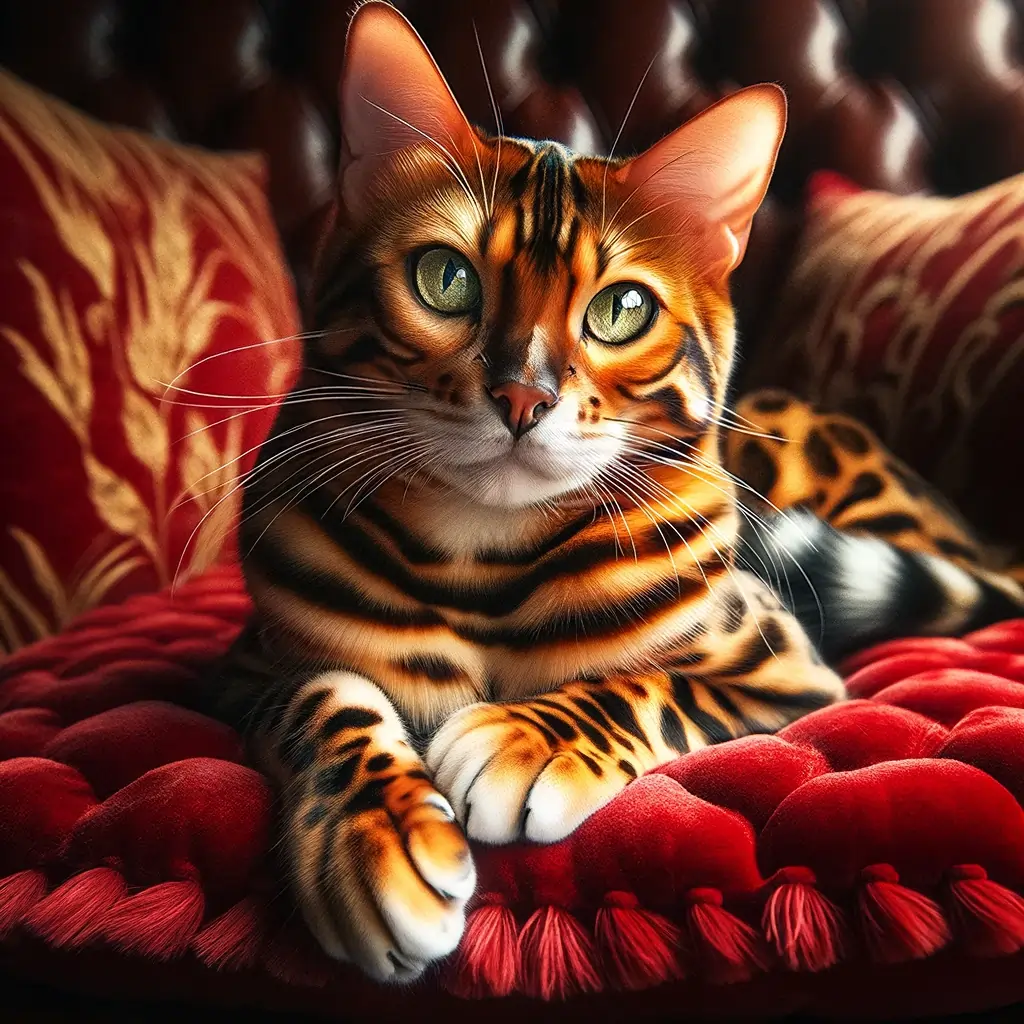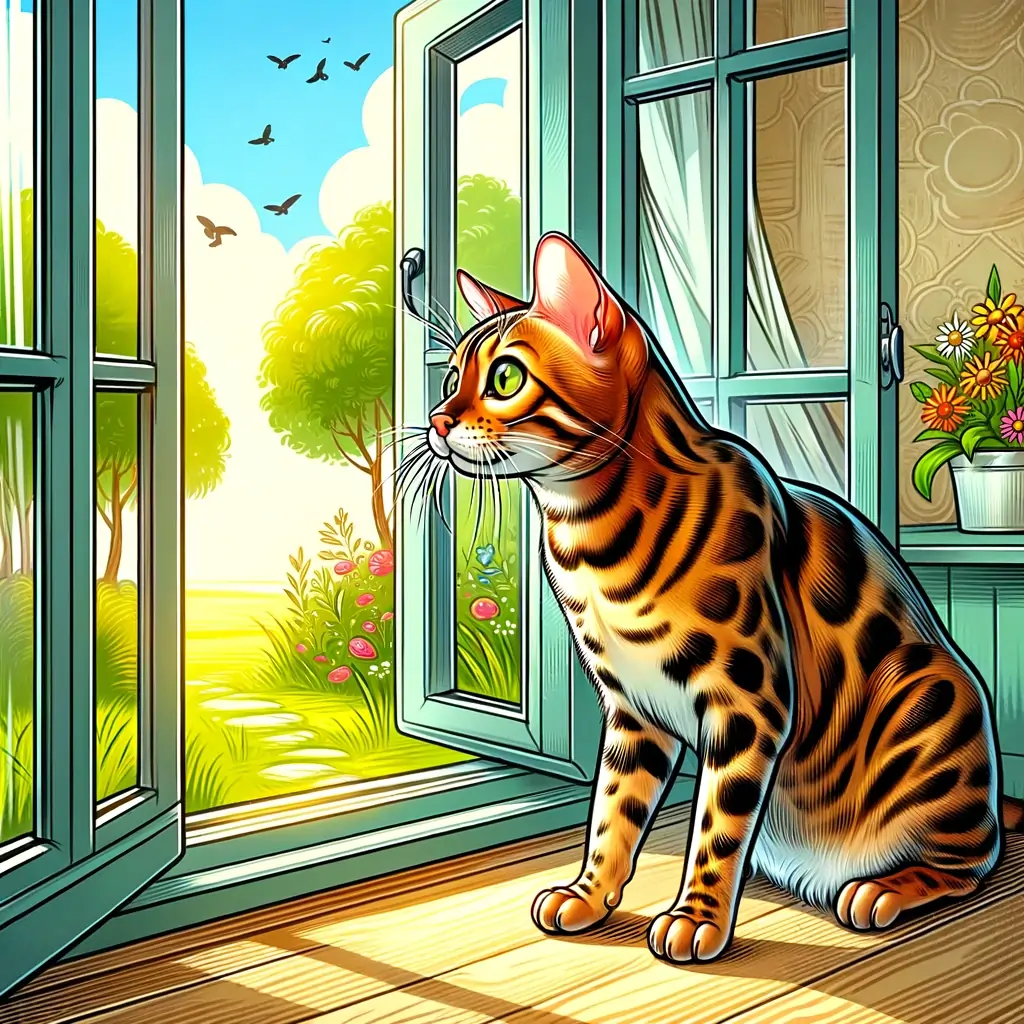Welcome to our complete guide to Bengal cat health issues and breed-specific care. Bengal cats are beloved for their unique appearance and playful personalities, but like all breeds, they are prone to certain health problems. Understanding these issues and providing breed-specific care is crucial to ensuring the well-being of your Bengal feline companion.
Common Bengal Cat Health Problems
When it comes to Bengal cats, being aware of common health problems can help ensure their well-being. This breed is known for its stunning appearance and playful personality, but there are certain genetic disorders and hereditary conditions that they may be predisposed to.
Understanding these health issues is crucial for cat owners to provide appropriate care and seek timely veterinary intervention. By being proactive, Bengal cat owners can help their furry companions live a healthy and happy life.
Genetic Disorders:
Some Bengal cats may be prone to certain genetic disorders. These are conditions that are inherited from their parents and can manifest at any age. It is important to be aware of these genetic disorders to ensure early detection and management. Here are a few common genetic disorders seen in Bengal cats:
- Patellar Luxation: This is a condition where the kneecap is dislocated from its normal position, causing pain and lameness.
- Hypertrophic Cardiomyopathy: Bengal cats are at a higher risk of developing this heart condition, which can lead to heart failure if left untreated.
- Progressive Retinal Atrophy: This is a degenerative eye disease that can eventually lead to blindness if not diagnosed and managed.
Hereditary Conditions:
Bengal cats may also be prone to certain hereditary conditions. These conditions are passed down through generations and can affect the overall health of the cat. It is important to be aware of these hereditary conditions to provide appropriate care and take necessary precautions. Here are a few common hereditary conditions seen in Bengal cats:
- Bengal Progressive Ataxia: This is a neurodegenerative disorder that affects the coordination and movement of Bengal cats. Early detection is crucial for managing the condition.
- Polycystic Kidney Disease: This is a condition where fluid-filled cysts develop in the kidneys, affecting their function. Regular monitoring can help detect and manage this condition.
Being informed about the common health problems in Bengal cats allows cat owners to recognize potential issues and seek appropriate veterinary care. Regular check-ups, early intervention, and a proactive approach to their health can help ensure that Bengal cats live a long and healthy life.
Recognizing Bengal Cat Health Issues
As responsible cat owners, it’s essential to be vigilant and attentive to our Bengal cats’ health. Recognizing the signs and symptoms of potential health issues is crucial for early detection and timely intervention. By staying observant, we can provide the necessary care and seek veterinary assistance when needed.
Signs of Pain
One of the key indicators that something might be wrong with our Bengal cat’s health is their display of pain. Look out for behavioral changes, such as increased aggression, restlessness, or reluctance to be touched. They may also vocalize more than usual or have difficulty moving around comfortably. If you notice any of these signs, it’s vital to consult a veterinarian to assess the source of the pain and provide appropriate treatment.
Change in Appetite
Monitoring changes in our Bengal cat’s appetite is another essential aspect of recognizing potential health issues. A sudden decrease or increase in their food consumption can be a red flag. Loss of appetite may indicate underlying health problems, while an increased appetite could be a sign of metabolic disorders. Keeping track of their eating habits and promptly addressing any significant changes is crucial for their overall well-being.
Lethargy
Bengal cats are known for their energetic and lively nature. Hence, if you notice a sudden lack of enthusiasm or increased lethargy, it could be an indication of underlying health concerns. Lethargy can manifest as reduced physical activity, excessive sleeping, or a lack of interest in normal playtime. Should you observe these behaviors, it’s essential to consult with a veterinarian to rule out any underlying health issues.
“Recognizing the signs and symptoms of potential health issues is crucial for early detection and timely intervention.”
Being proactive in recognizing these symptoms is essential for the well-being of our Bengal cats. Remember that each cat is unique, and any noticeable changes in their behavior or physical condition should be taken seriously. By promptly seeking veterinary care when needed, we can ensure that our furry friends receive the necessary treatment and attention to lead happy and healthy lives.
| Signs and Symptoms | Possible Health Issues |
|---|---|
| Signs of Pain (aggression, restlessness, vocalization) | Arthritis, dental problems, injury, urinary tract issues |
| Change in Appetite (decreased or increased) | Digestive disorders, metabolic conditions, organ dysfunction |
| Lethargy (reduced activity, excessive sleep, lack of interest) | Infections, anemia, emotional distress, underlying diseases |
Bengal Cat Health Problems and Treatment
When it comes to the health of our beloved Bengal cats, it’s important to be aware of the specific health problems they may encounter. By understanding these issues and seeking immediate treatment from a veterinarian, we can provide the best care for our feline companions.
Common Health Problems in Bengal Cats
Bengal cats are generally a healthy breed, but like any other cat, they are susceptible to certain health problems. Here are some of the most common health issues that Bengal cats may experience:
- Gastrointestinal problems
- Urinary tract infections
- Respiratory infections
- Heart disease
- Obesity
These health problems can cause discomfort and impact the overall well-being of our Bengal cats. Therefore, it is crucial to monitor their health closely and seek immediate treatment when needed.
Seeking Veterinary Care
If you notice any signs of illness or changes in behavior in your Bengal cat, it is important to consult a veterinarian as soon as possible. Prompt veterinary care is essential in diagnosing and treating health problems effectively.
A veterinarian will conduct a thorough examination of your cat, which may include blood tests, urine analysis, and imaging scans. Based on the results, they will provide a proper diagnosis and recommend appropriate treatment options. Bengal cats may require specific medications or dietary changes to manage their health conditions.
Importance of Immediate Treatment
Immediate treatment is critical in addressing Bengal cat health problems. Delaying treatment can lead to the progression of the illness and may have severe consequences for your cat’s overall health and well-being.
By seeking immediate treatment, you can help alleviate your Bengal cat’s discomfort and improve their quality of life. Additionally, early intervention can prevent further complications and ensure the best possible outcome for your feline companion.

Preventive Care for Bengal Cats
Proper preventive care is key to maintaining the health and well-being of your Bengal cat. By implementing breed-specific care, providing the right cat food, ensuring vaccination, and offering a good diet, you can help your feline companion thrive.
1. Breed-Specific Care
Bengal cats have specific needs due to their unique breed characteristics. It’s important to understand and address these needs to keep your cat healthy and happy. Some key aspects of breed-specific care for Bengal cats include:
- Providing ample mental and physical stimulation through interactive toys and play sessions
- Creating an enriched environment with climbing structures and scratching posts
- Maintaining regular grooming to keep the Bengal cat’s coat in optimal condition
- Ensuring a safe and secure outdoor space, if applicable, to satisfy their natural hunting instincts
2. Cat Food
The right cat food plays a crucial role in your Bengal cat’s overall health. High-quality, balanced cat food specifically formulated for Bengal cats is essential to meet their nutritional needs. Look for cat food that contains a combination of lean protein, healthy fats, and essential vitamins and minerals. It’s also important to provide fresh, clean water at all times.
3. Vaccination
Vaccinations are an integral part of preventive care for Bengal cats. Regular vaccinations protect them against common feline diseases and ensure a strong immune system. Consult with your veterinarian to determine the appropriate vaccination schedule for your Bengal cat based on their age, lifestyle, and overall health.
4. Good Diet
A good diet is essential for the well-being of your Bengal cat. Provide a well-balanced and nutritionally complete diet that meets their specific dietary requirements. Consult with your veterinarian to determine the appropriate portion size and feeding schedule based on your cat’s age, weight, and activity level.
5. Regular Veterinary Check-ups
Regular veterinary check-ups are vital for monitoring your Bengal cat’s health and catching any potential issues early on. Schedule routine visits with your veterinarian for vaccinations, physical examinations, and preventive treatments such as flea and tick control.
6. Neutering/Spaying
Neutering or spaying your Bengal cat is an important aspect of preventive care. It not only helps control the cat population but also has health benefits for your cat, such as reducing the risk of certain diseases and behavioral issues.
Following these preventive care measures will greatly contribute to the overall well-being and happiness of your Bengal cat. By providing breed-specific care, and ensuring the right cat food, vaccination, and a good diet, you can enjoy a long and fulfilling companionship with your beloved Bengal cat.
Conclusion
In conclusion, understanding Bengal cat health issues and implementing breed-specific care is crucial for the well-being of these unique feline companions. By being proactive in our care, we can ensure that our Bengal cats lead healthy and happy lives.
Throughout this guide, we have explored common health problems that affect Bengal cats, such as genetic disorders and hereditary conditions. It is important to recognize the signs and symptoms of these issues, including changes in appetite, lethargy, and signs of pain. By being vigilant, we can seek timely veterinary intervention and provide appropriate treatment when needed.
Preventive care plays a vital role in maintaining the health of Bengal cats. We should focus on breed-specific care, including feeding them the right cat food, ensuring they receive necessary vaccinations, and providing a balanced diet. By following these preventive measures, we can reduce the risk of health problems and promote the overall well-being of our beloved Bengal cats.
FAQs
Q: What are some common health issues that Bengals are prone to?
A: Bengals are prone to Hypertrophic Cardiomyopathy (HCM), Progressive Retinal Atrophy (PRA), and Pyruvate Kinase Deficiency among other conditions.
Q: How can I keep my Bengal cat healthy?
A: To keep your Bengal cat healthy, make sure to provide a balanced diet, regular exercise, routine vet check-ups, and lots of mental and physical stimulation.
Q: What should I feed a Bengal kitten?
A: Bengal kittens should be fed a high-quality, protein-rich diet specifically formulated for kittens to support their growth and development.
Q: What is Hypertrophic Cardiomyopathy (HCM) in Bengal cats?
A: HCM is a common heart condition in Bengals where the walls of the heart muscle thicken, affecting the heart’s ability to function properly.
Q: What is Progressive Retinal Atrophy (PRA) in Bengal cats?
A: PRA is a genetic eye disorder that can lead to vision loss in Bengal cats over time. Regular eye check-ups are important for early detection.
Q: Can Bengal cats be prone to gastrointestinal issues?
A: Yes, Bengals can be prone to digestive issues like diarrhea and bowel disease. It’s important to monitor their diet and consult a vet if any issues arise.

Hey guys, My name is Simon Smith. I’m from Canada and live near Victoria
I live with my sweet family and have 20+ Ragdolls of different types. I love them as my own children. My profession is as a hotel manager.
I love to keep Ragdolls and grow their breeder case. I have 7 years of experience.
I’m an expert in cat care. So, I’m here to provide you with new information about my cats daily. This is my personal blog website, so I request that you kindly visit our site daily.
If you’re a Ragdolls lover and you have any questions or confusion about cats, text me on the Contact Us page or Gmail.
Thank u
